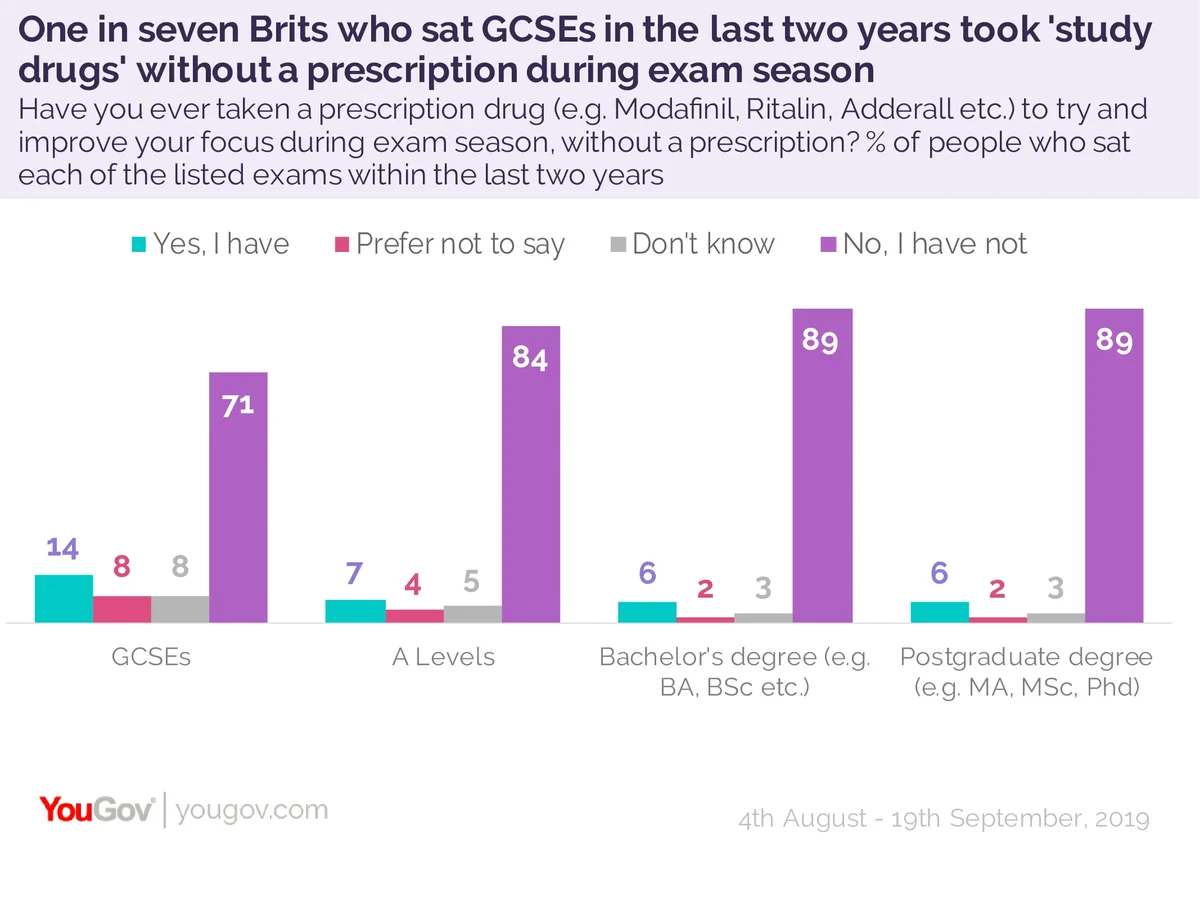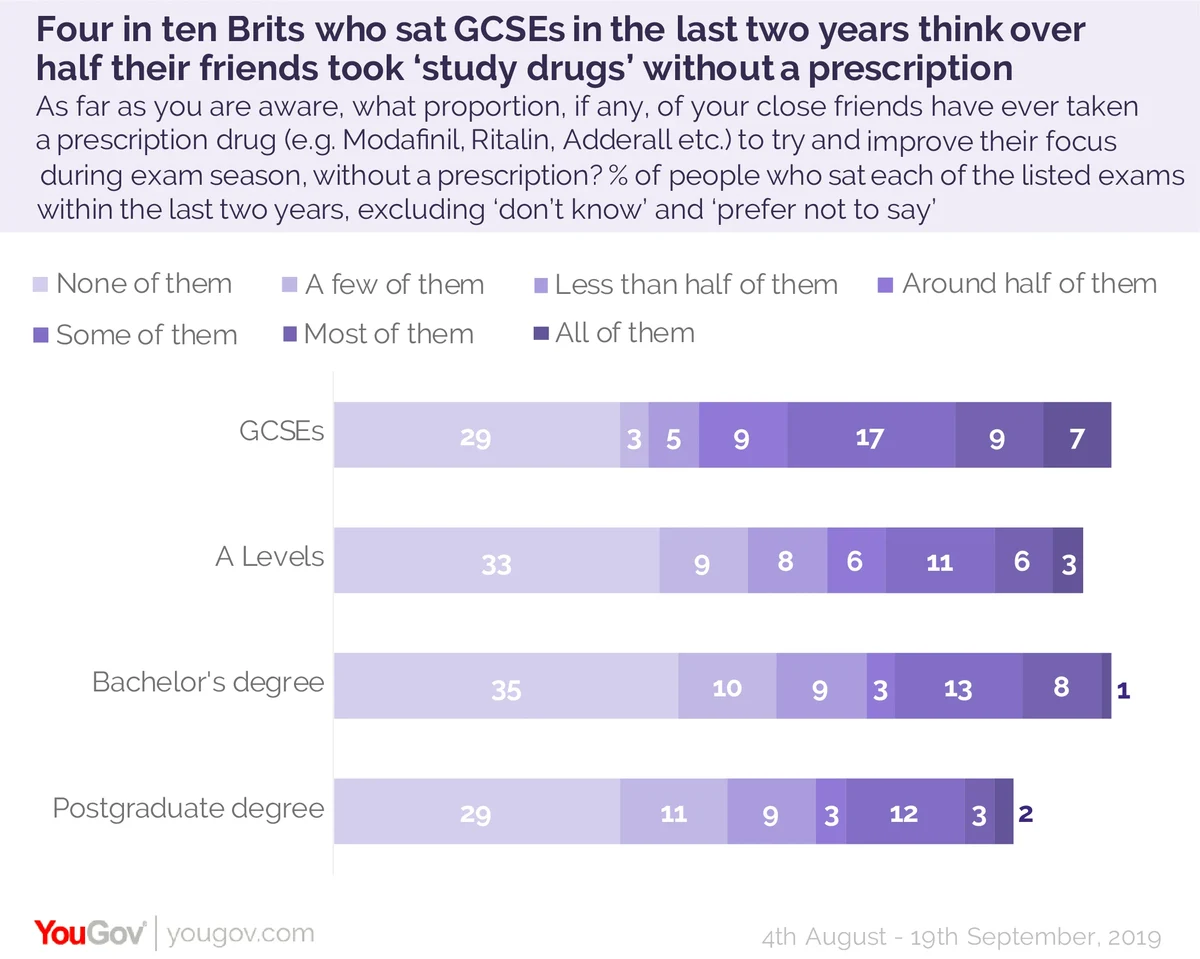Recent school and university leavers report popping potentially dangerous pills typically prescribed for concentration problems to help them revise for exams
As exam season approaches, YouGov research reveals that students are turning to black market study drugs intended for people with serious medical conditions to help them revise – with the very youngest students being the heaviest users.
From GCSE takers to university postgraduates, eight in ten (77%) students report feeling ‘fairly’ or ‘very’ stressed in the run-up to exams. And it seems that this pressure is causing large numbers to seek potentially dangerous short-term pharmaceutical solutions - 14% of those who recently sat GCSEs admitted to taking ‘study drugs’.
GCSE students twice as likely as university students to take ‘study drugs’
Study drugs such as Adderall, Ritalin and Modafinil are typically prescribed to people with conditions like ADHD, narcolepsy or Alzheimer’s. They can enhance memory, alertness and focus for several hours. But they also have potentially dangerous side effects such as anxiety, sleeplessness, and a higher risk of psychosis and heart attacks.
New YouGov’s research reveals that among students who have taken GCSEs in the past two years, one in seven (14%) had taken such ‘study drugs’ without a prescription. Among those who recently took A-levels, this number was one in fourteen (7%).

This drop-off among older students continues, with one in eighteen (6%) of those who finished undergraduate or postgraduate degrees in the past two years saying they had taken them.
“I would never, but my friends do…”
Four in ten (41%) students who have taken GCSEs in the past two years said that they think at least half of their close friends have taken study drugs, with one in six (15%) saying that ‘most’ or ‘all’ of them have.
A quarter (26%) of A-level students said that the majority of their close friends had taken them during exam season, with half (48%) saying at least ‘a few of them’ have. One in eleven (9%) said ‘most’ or ‘all’ did so.

University students are less than half as likely as school leavers to report that most or all of their close friends have taken study drugs (7% and 5% respectively), again showing that the practice is more common among younger people.
Still, a quarter (23%) of undergraduate students and a fifth (21%) of postgraduate students say at least half their friends have taken them. In both groups, four in ten (41%) say at least a few have taken them, with around a third (35% vs 29% respectively) saying they do not know.
A third of students consume ‘a lot more’ sugary snacks and caffeine during exam season
Study drugs are by no means the only substance that students turn to during exam season. Just under 60% of people taking GCSE, A-level, undergraduate and postgraduate exams in the past two years say they consumed more sugary snacks during exam season (54%, 57%, 62% and 63% respectively) while half (51%) consumed more caffeine.
A quarter (26%) of students of every level say they consumed more energy drinks, including undergraduate and postgraduate students – despite the fact that among those at university as an undergraduate or postgraduate, around four in ten (37% and 38% respectively) say they have never consumed them, compared to less than a third of GCSE and A-level students (28% and 29%).
Photo: Getty
See full results here










